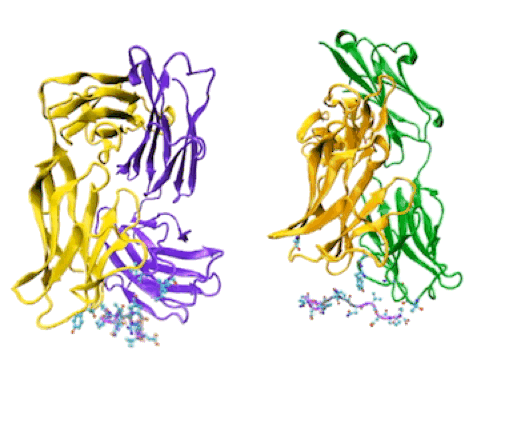
Computer simulations show how two antibodies—CIS43 (yellow-purple) and CIS42 (gold-green)—interact with peptide 21, a protein fragment from the malaria parasite.
With the aid of protein crystallography at the Advanced Light Source (ALS), investigators at the National Institute of Allergy and Infectious Diseases (NIAID) and the Fred Hutchinson Cancer Research Center in Seattle led a study in which they isolated human-derived antibodies that protect against malaria and determined the antibodies’ site of attack. The team isolated the antibody, called CIS43, from the blood of a volunteer who had received an experimental vaccine made from whole, weakened malaria parasites (Plasmodium falciparum). The use of a whole-parasite vaccine allowed the isolation of antibodies against circumsporozoite protein (CSP), which covers the malaria parasite in its native conformation. The scientists co-crystallized CIS43 with various peptides from CSP. Protein crystallography at ALS Beamlines 5.0.1 and 5.0.2 revealed that CIS43 works by binding to a specific portion, or epitope, of CSP. This epitope occurs only once along the length of the surface protein and is conserved across 99.8 percent of all known strains of P. falciparum. The discovery paves the way for the development of a more effective and practical human vaccine for malaria, a disease responsible for half a million deaths worldwide each year.
Read more from the ALS.



